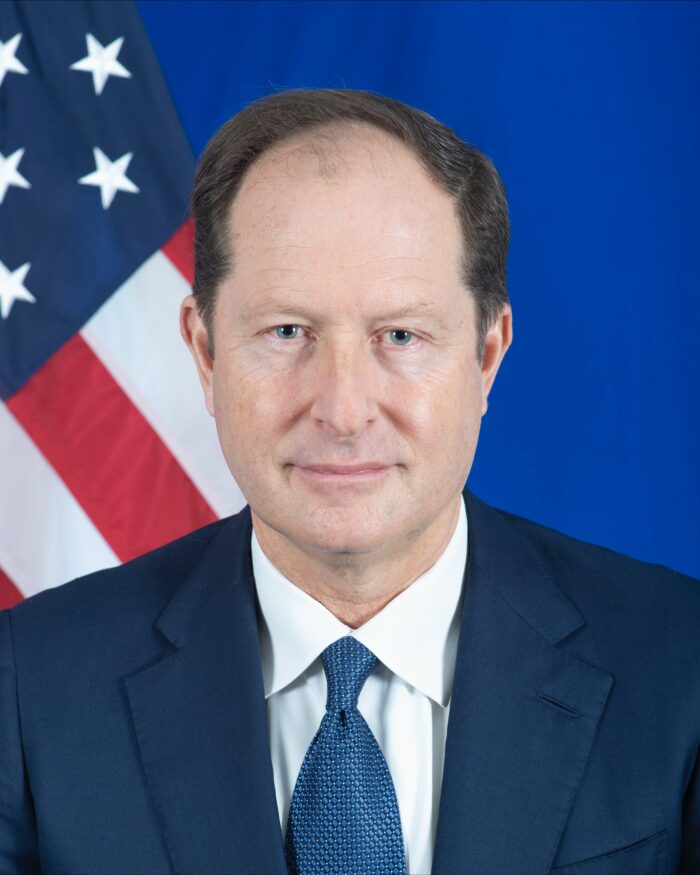The University of Warsaw is proud to be hosting Mark F. Brzezinski, the Ambassador of the United States to Poland, who is going to deliver a lecture about the global leadership in the war in Ukraine.
The lecture “Global Leadership: Lessons from the Ukraine Crisis” will be held on May 9, 2022 at 5:00 p.m., in the Adam Mickiewicz Lecture Hall, Auditorium Maximum, University of Warsaw at 26/28 Krakowskie Przedmieście Street.
The lecture is open to everyone on prior registration at potwierdzenia(at)uw.edu.pl. After registering, the confirmation should be obtained from the organizers. The number of people expected to attend the event is limited.
The lecture will be conducted in English. You can get 3 OZN points for participating.
About Mark Brzezinski

Mark F. Brzezinski was born in 1965, in the USA, and raised in Washington. He is a lawyer, political scientist and diplomat. He completed his BA studies at Dartmouth College, obtained the title of Juris Doctor at the University of Virginia, and a PhD in Political Science from Oxford University.
Between 1999 and 2001, he served on President Bill Clinton’s National Security Council Staff. He was a foreign policy advisor to the presidential campaign of Barack Obama.
From 2011 to 2015, he was appointed the US Ambassador to Sweden. He introduced innovative approaches to advance the US-European trade and implemented key Swedish investments. He also organised the first-ever US Presidential visit to Stockholm.
His 1991 arrival in Warsaw, and the study of the Polish Constitutional Tribunal under the Fulbright Scholar Program, resulted in the book “The Struggle for Constitutionalism in Poland”.
In 2019, he was awarded the Officer’s Cross of the Order of Merit of the Republic of Poland.
On 22 December 2021 Mark Brzezinski was officially sworn in as the new US Ambassador to Poland.




